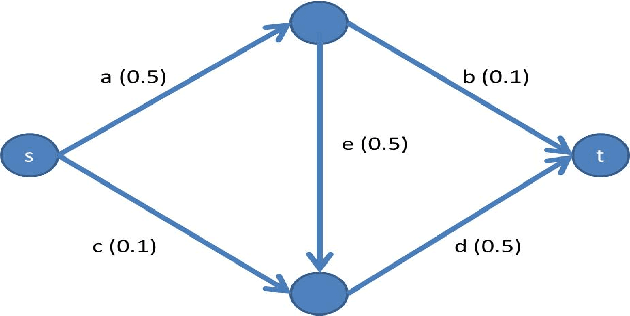Solving Cooperative Reliability Games
Paper and Code
Feb 14, 2012
Cooperative games model the allocation of profit from joint actions, following considerations such as stability and fairness. We propose the reliability extension of such games, where agents may fail to participate in the game. In the reliability extension, each agent only "survives" with a certain probability, and a coalition's value is the probability that its surviving members would be a winning coalition in the base game. We study prominent solution concepts in such games, showing how to approximate the Shapley value and how to compute the core in games with few agent types. We also show that applying the reliability extension may stabilize the game, making the core non-empty even when the base game has an empty core.
 Add to Chrome
Add to Chrome Add to Firefox
Add to Firefox Add to Edge
Add to Edge